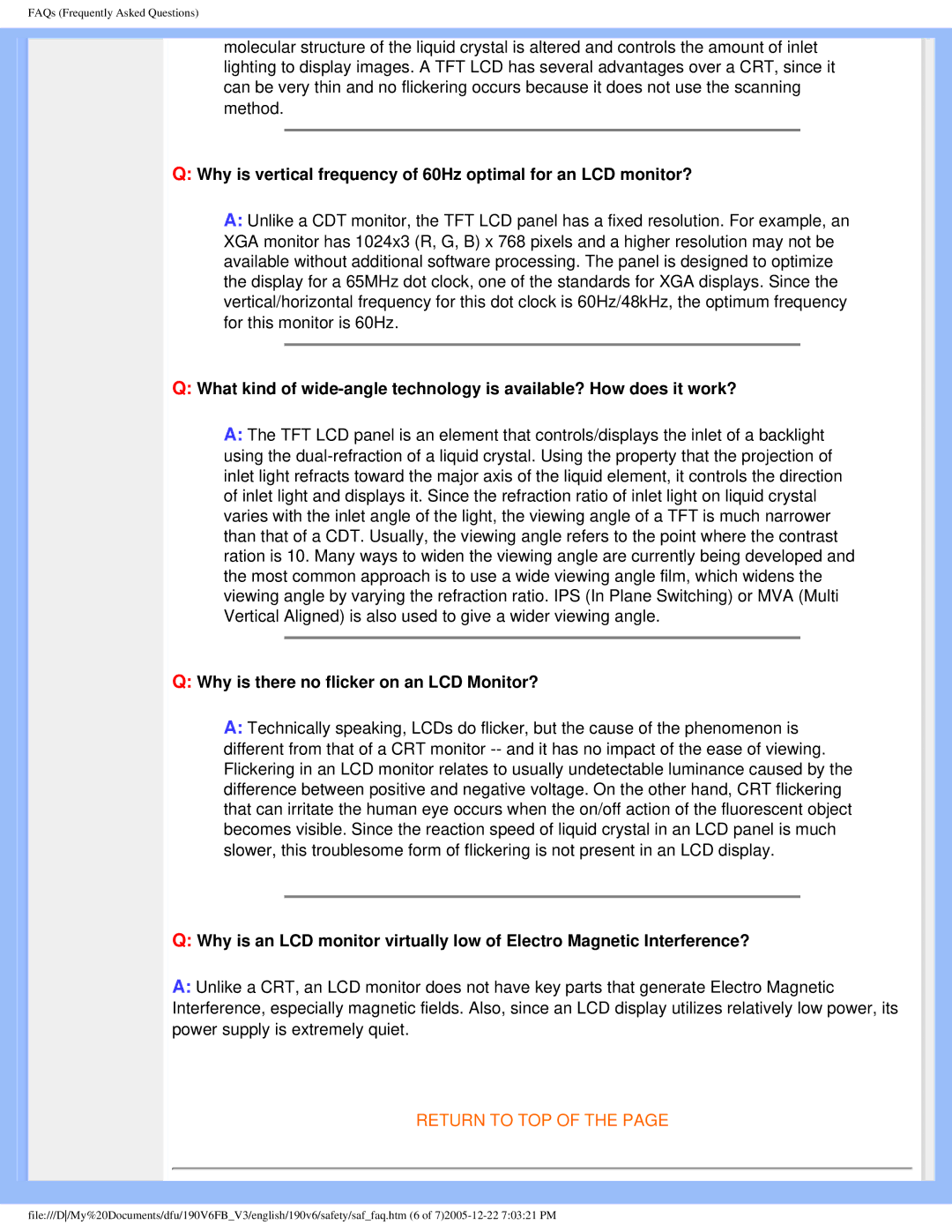
FAQs (Frequently Asked Questions)
molecular structure of the liquid crystal is altered and controls the amount of inlet lighting to display images. A TFT LCD has several advantages over a CRT, since it can be very thin and no flickering occurs because it does not use the scanning method.
Q:Why is vertical frequency of 60Hz optimal for an LCD monitor?
A:Unlike a CDT monitor, the TFT LCD panel has a fixed resolution. For example, an XGA monitor has 1024x3 (R, G, B) x 768 pixels and a higher resolution may not be available without additional software processing. The panel is designed to optimize the display for a 65MHz dot clock, one of the standards for XGA displays. Since the vertical/horizontal frequency for this dot clock is 60Hz/48kHz, the optimum frequency for this monitor is 60Hz.
Q:What kind of
A:The TFT LCD panel is an element that controls/displays the inlet of a backlight using the
Q:Why is there no flicker on an LCD Monitor?
A:Technically speaking, LCDs do flicker, but the cause of the phenomenon is different from that of a CRT monitor
Q:Why is an LCD monitor virtually low of Electro Magnetic Interference?
A:Unlike a CRT, an LCD monitor does not have key parts that generate Electro Magnetic Interference, especially magnetic fields. Also, since an LCD display utilizes relatively low power, its power supply is extremely quiet.
RETURN TO TOP OF THE PAGE
file:///D/My%20Documents/dfu/190V6FB_V3/english/190v6/safety/saf_faq.htm (6 of
